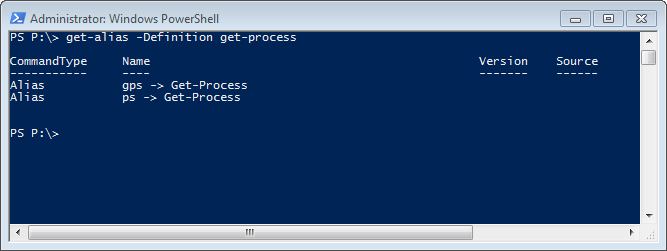

Powershell grep a line code#
And another problem is that the return code is always 0 which affects the color in the modeline.But the final line in the grep buffer itself shows correctly if matches were found or uses the expected colors for highliting the result. There is a caveat with Out-String -Width: for its formatting it buffers the input with the effect that you don’t see the matches as they are found while scanning the directory tree, but you see nothing during the search and then suddenly all the matching files in the last 10 milliseconds. Therefore, useful or accepted answers there may not be useful here. PS: There are quite a few related questions for head and tail, but not focused on the issue of speed. I do not have -tail (and I do not know if it will work fast).
Powershell grep a line windows 8#
With Powershell 3 (comes with Windows 8 and can be installed on Windows 7) this can be fixed with a Width parameter for Out-String: powershell -c "dir -Include *.* -Recurse | Select-String 'end-of-line-pattern$' | Out-String -Width 250" Solutions here Unix tail equivalent command in Windows Powershell did not work. The problem with it is that it assumes a console width of 80 characters and may cause a break in the middle of the word or even worse (because it breaks the hyperlinking in the grep buffer) a break in the file’s path name. Powershell comes pre-installed since Windows 7. MS Windows Powershell can be used to recursively search for a regular expression because I had problems with the UNIX like approach with find, xargs and grep when my directory tree had spaces in the directory or file names. Maybe it works to use Glimpse? Does that work on NT? Also, I’m not sure about the speed since I don’t know Codewright, I can’t compare. By default, Select-String finds the first match in each line and, for each match, it displays the file name, line. You can use it like Grep in UNIX and Findstr in Windows with Select-String in PowerShell. This is even easier: (setq grep-find-command ‘(“findstr /sn *”. The Select-String cmdlet searches for text and text patterns in input strings and files. The standard FINDSTR on NT can do recursive greps….I think this is what MS DevStudio uses anyway….I use it for simple searchs, I don’t know how well it supports real regexp’s, and such… ( let ((grep-command '( "findstr /n /s *.cpp *.c *.h". "Run a grep using the Windows findstr command." It has a Windows port and I use it all the time from within emacs with an adapted grep function. There is a GNU rgrep that greps through a directory structure. See also DiredFindInLisp for ‘M-x find-grep-dired-lisp’. (find-dired dir (concat "-name '*" pattern "*'")))) \nsFind-name locate-style (filename wildcard): ") (interactive "DFind-name locate-style (directory): (define-key global-map "\C-xfl" ( lambda (dir pattern) This parameter cannot be specified along with -raw -Raw Causes the cmdlet to output only the matching strings, rather. (define-key global-map "\C-xff" 'find-name-dired) (define-key global-map "\C-xfg" 'find-grep-dired) (define-key global-map "\C-xf" grep-and-find-map)

emacs: ( defvar grep-and-find-map (make-sparse-keymap)) Which is the composite command that recursive greps.


 0 kommentar(er)
0 kommentar(er)
